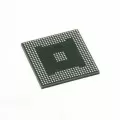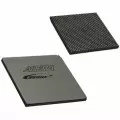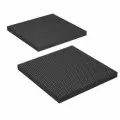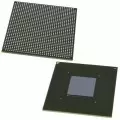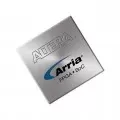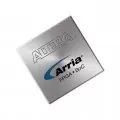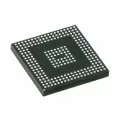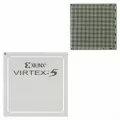OUTLINE:
An Ultimate Guide: Overview of AI Chip Companies & Makers
 416
416The rise of AI has led to a surge in demand for computing power that traditional central processing units (CPUs) and graphics processing units (GPUs) struggle to meet efficiently. This gap has given rise to a new category of processors known as AI chips or AI accelerators. These chips are designed to optimize the performance of machine learning models by providing high computational speed, low energy consumption, and efficient memory usage. And this ultimate guide will provide a thorough introduction and analysis of the top makers and companies of AI chips worldwide. Now let's get started!
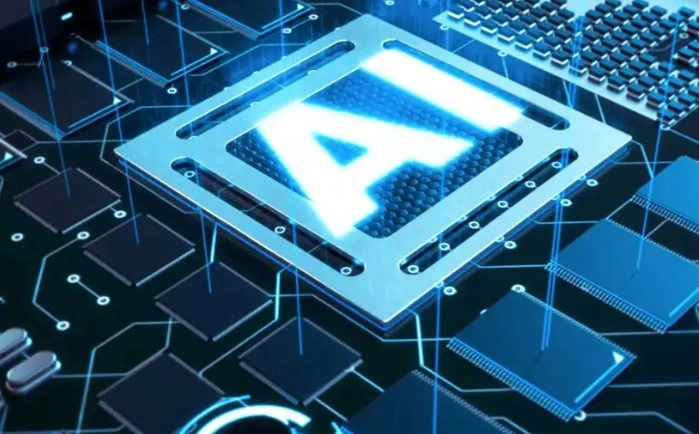
Image Source: Network World
The World's Leading AI Chip Makers And Companies
NVIDIA
NVIDIA is a front runner in AI chips, with products encompassing key applications of AI computing, including training and reasoning. Specifically, the company has made significant strides in the AI chip market with its product line of Tensor Core GPUs. These excellent GPUs are specifically tailored for deep learning tasks and have become a staple in data centers and research labs worldwide.
The PlayStation 3 and Xbox both use Nvidia graphics arrays. And the company also makes AI chips such as Volta, Xavier, and Tesla. NVIDIA’s chip sets are designed to solve business problems in various industries. Xavier, for example, is the basis for an autonomous driving solution, while Volta is aimed at data centers. Recently, NVIDIA has announced its latest AI chip creation, which is named the Blackwell GPU, a new generation of AI graphics processors expected to be delivered in the near future.
Intel
Intel is the largest player in the CPU market and has a long history of semiconductor development. As a colossus in the semiconductor industry, Intel has solidified its position in the AI chip market by acquiring companies such as Altera and Movidius. It offers a variety of AI accelerators, such as neural network processors for training and reasoning.
Its Xeon series AI chips have been modified to handle various AI tasks. Intel also introduced the Nervana neural network processor, an ASIC designed specifically for artificial technologies. These moves show that Intel is working to extend its strengths in traditional computing to AI.
Recently, Intel has launched a series of new AI chips programs, including the sixth generation Xeon processor, the next generation of Lunar Lake chips for AI PCs, and AI-dedicated chips. These AI innovations are making efforts to promoting Intel’s computing performance and efficiency, which will then accelerate the growth of the entire AI ecosystem, making significant impact on AI applications in the field of data center, cloud computing, Internet networking, etc.
Advanced Micro Devices (AMD)
AMD has been challenging Nvidia's dominance in the GPU market and is making significant inroads into the AI chip sector. With its Radeon Instinct GPUs, AMD offers competitive products that cater to the needs of both researchers and enterprises looking to harness the power of AI. The company's collaboration with major players like Google and Tesla indicates its growing influence in the AI industry.
Moreover, AMD designs and manufactures a wide range of microprocessors, including central processing units, graphics processing units, servers, and embedded processors, all of which are widely used in different fields, including personal computers, game consoles, cloud services, and embedded systems.
AMD is also working with machine learning companies like Hugging Face to enable data scientists to use their hardware more efficiently. The company's AI footprint is focused on its computational product line, and the company will still improve the performance and service life of its AI products for AI workloads by integrating AI-accelerated features such as neural processing units in the future.
Huawei
Huawei has achieved outstanding accomplishments in the domain of AI chips. The company has independently developed Centen AI chips in terms of training efficiency and accounted for up to half of the market share in the Chinese large model market.
Due to its high performance and efficiency, the Centen AI chip has emerged as a good solution for large model training. Moreover, Huawei has also established Centen Artificial Intelligence computing centers in a number of cities across the country, providing robust AI computing support and facilitating the application and innovation of artificial intelligence technology.
These companies have a strong influence and market share in the field of AI chips, and continue to promote the development and application of AI technology.
Microsoft
As the pace of AI and the transformation it allows across industries accelerates, Microsoft is committed to expanding and improving their global cloud infrastructure to meet the needs of customers and developers by providing faster, more performant, and more efficient computing and AI solutions.
Microsoft is touting new computers with advanced chips designed to run artificial intelligence features in Windows, without quickly using up battery life.
The company released a Surface laptop and a Surface Pro tablet in May that come with Qualcomm chips that can run some AI tasks without an Internet connection.
Apple
Apple has long been committed to the development and improvement of its own chips, and its latest iPhone and iPad are equipped with A15 and A16 bionic CPU. These chips not only improve the performance of the electronic device, but also integrate Apple's neural engine to speed up the processing of AI tasks. The A16 bionic chip reduces power consumption by 50% while improving performance by 15%, showing Apple's deep strength in the field of AI chips. In addition, Apple has further consolidated its autonomous position in the AI field by reducing its dependence on external suppliers, such as severing its relationship with Qualcomm.
Qualcomm
Qualcomm is a powerful combination, which started as a mobile chip designer and is now building AI into those mobile chips. The company’s Snapdragon processors include dedicated AI engines to efficiently handle machine learning (ML) right on the device — a boost to speed and privacy for the person holding that device. Qualcomm is also building AI into its chips for PCs, cars and the internet of things.
Google, known for its search engine and cloud services, has made significant strides in AI with its Tensor Processing Units (TPUs). Google's custom-designed Tensor Processing Units (TPUs) are integral to the company's cloud infrastructure and AI services. TPUs are ASICs (Application-Specific Integrated Circuits) that excel in running machine learning models used in Google's search engine, translation services, and AlphaGo, among others. Google's open-source approach to TPU architecture has also spurred innovation within the AI community.
With the availability of TPUs on Google Cloud, the company is opening up its AI prowess to more innovative AI chips developers and researchers.
Graphcore
Graphcore is a UK-based startup that has gained attention for its Intelligence Processing Units (IPUs). The company's IPU represents a new type of AI processor specifically designed to provide smart service and high efficiency for machine intelligence, which are created to handle complex graph-based computations, a common requirement in AI applications.
Furthermore, the IPU is crafted to optimize AI computing by means of massive parallel processing and distinctive data storage architecture. The company has strategic partnerships between data storage corporations like DDN, Pure Storage and Vast Data.
Graphcore's innovative approach has attracted significant investment and partnerships, signaling its potential to disrupt the AI chip market.
The RYZEN 5 9600X and RYZEN 7 9700X will be released on August 8th, while the RYZEN 9 9900X and RYZEN 9 9950X will be released on August 15th. The RYZEN 9 9950X is the highest performance processor in this release, with 16 cores and 32 threads, running at 4.3GHz up to 5.7GHz, using 16MB L2 cache and 64MB L3 cache, and consuming a maximum of 170W.
Cerebras Systems
Cerebras Systems is a California-based semiconductor company focused on developing chips for artificial intelligence (AI) and high-performance computing. The company is known for its innovative wafer-scale AI accelerator chips, which are designed for training large AI models. Cerebras' products include the Wafer Scale Engine (WSE) and CS family of AI supercomputers, which are recognized by the market for their ability to train and run large-scale AI models.
The chip made by Cerebras Systems has boasted unprecedented computing density and memory capacity, significantly reducing the lateness of data transmission.
Habana Labs
Habana Labs, which was acquired by Intel, has concentrated on developing high-performance AI inference and training processors. Its Goya inference processor and Gaudi training processor are designed to offer AI solutions with high efficiency and throughput for data centers.
Its product line consists primarily of processors for deep learning training and inference, which are specifically designed to provide efficient AI solutions to cloud service providers and enterprise customers.
Recently, Habana Labs' products have been playing an increasingly important role in the field of artificial intelligence. Habana Labs COO Eitan Medina reportedly said that the company is effectively driving the development of generative AI, which shows that Habana Labs' technology is being widely used in advanced AI application scenarios.
OpenAI- AI hardware company
OpenAI is reported to be raising funds to build its own AI hardware. And its AI software and website have won the popularity and the acknowledgement of every user all over the world.
Final Verdict
AI chip producers and businesses are working cooperatively to advance and implement technical innovation at a never-before-seen rate. Thus, understanding and applying AI chips wisely in our work and daily life will enhance the development of AI technologies and definitely continue to stimulate new impetus for technological progress and economic growth.

Disclaimer: The views and opinions expressed by individual authors or forum participants on this website do not represent the views and opinions of Chipsmall, nor do they represent Chipsmall's official policy.

share this blog to:



